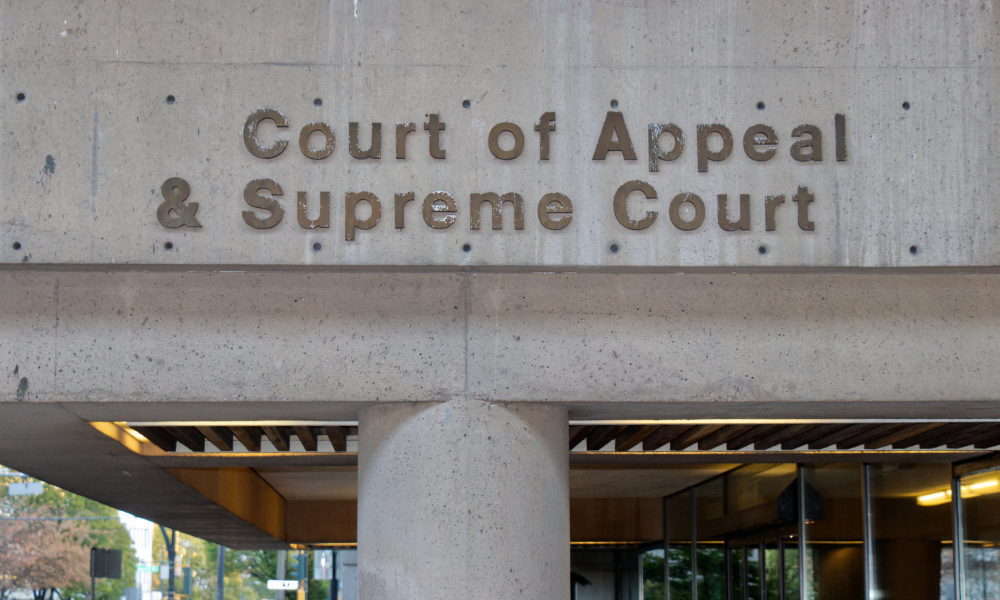
Ruling also affirms punitive damages set at $100,000

In a case alleging breaches of two trusts, the British Columbia Court of Appeal affirmed the damages awarded by a judge, who assessed them at the highest trading value of the shares involved to deter faithless fiduciaries.
The discounted EVC units trust claim involved EVC units, which were shares in Electrameccanica Vehicles Corp., a BC company with attached warrants. The respondents in Zhang v. Zhang, 2025 BCCA 143, alleged they suffered loss due to the appellants’ refusal to sell shares and warrants that the appellants held in trust for the respondents at a favourable time.
In the Unison trust claim, the respondents argued that the appellants held shares in Unison International Holdings Ltd. in trust for them.
In December 2022, a trial judge of the Supreme Court of British Columbia awarded the respondents $6,022,472 for damages flowing from the breaches of trust. In the discounted EVC units trust claim, the judge awarded:
In the Unison trust claim, the judge awarded $3,737,362 for the respondent’s 210,000 EVC shares held in trust, based on the value of the highest price at which the discounted EVC shares traded between Dec. 5, 2019, and Nov. 21, 2021 (US$13.60 per share). Lastly, the judge assessed punitive damages at $100,000.
On appeal, the appellants made three arguments. First, they alleged a legal error in the judge’s liability finding against them. They said the trusts were illegal and unenforceable since the respondents set up the trusts for the illegal purpose of avoiding their creditors.
Second, the appellants claimed an error in principle in the judge’s assessment of the damages based on the breaches of trust at the highest value at which the shares were traded.
Third, the appellants alleged an error in principle in the judge’s punitive damages award. They argued that the judge allowed the respondents to profit from illegal conduct, contradicting the ruling in Hall v. Hebert, 1993 CanLII 141 (SCC), [1993] 2 SCR 159.
The Court of Appeal for British Columbia dismissed the appeal. First, the appeal court upheld the trial judge’s conclusion that the trusts were enforceable and his finding that the respondents’ mere intention to use the trusts to conceal assets did not, by itself, legally justify exercising his discretion against enforcing the trusts.
The appeal court ruled that the judge considered and weighed the applicable factors against his unchallenged factual findings. The appeal court determined that the judge’s approach to the appellants’ unenforceability defence was principled, consistent with the authorities, and deserving of deference.
Second, the appeal court also deferred to the judge’s assessment of the damages flowing from the breaches of trust. The appeal court deemed the judge entitled to assess damages at their highest trading value, based on his balancing of equities and the objective of deterring faithless fiduciaries.
“In my view, it does not follow that, because the relevant shares achieved their highest price on only one day over the time they were wrongfully withheld, it is unrealistic to value the loss at that price,” wrote Justice J. Christopher Grauer for the appeal court. “The shares did achieve that value; it was not a matter of speculation.”
The appeal court found that the appellants prevented the respondents from benefiting from the top price by wrongfully depriving them of the shares and warrants. The appeal court said the appellants should be liable for that deprivation, which was a risk that the law imposed on faithless fiduciaries.
Third, the appeal court saw no error in principle in the judge’s punitive damages award. The appeal court found the judge justified in making the award he did to denounce conduct that he deemed exceptionally egregious.
The appeal court explained that the Hall ruling discussed the need for internal consistency in the law to promote the justice system’s integrity in the context of a case where the litigant was “profiting from illegal conduct” – driving while impaired – to claim compensation for personal injury.
The appeal court decided that Hall did not suggest that it would be an error to award punitive damages against parties guilty of egregious conduct as faithless fiduciaries in a situation like the present case.
The appeal court concluded that the punitive damages awarded by the judge did not reward illegal conduct in the circumstances of this case, where the respondents’ reason to set up the trusts might have been contrary to a law protecting creditors, but was not criminal.